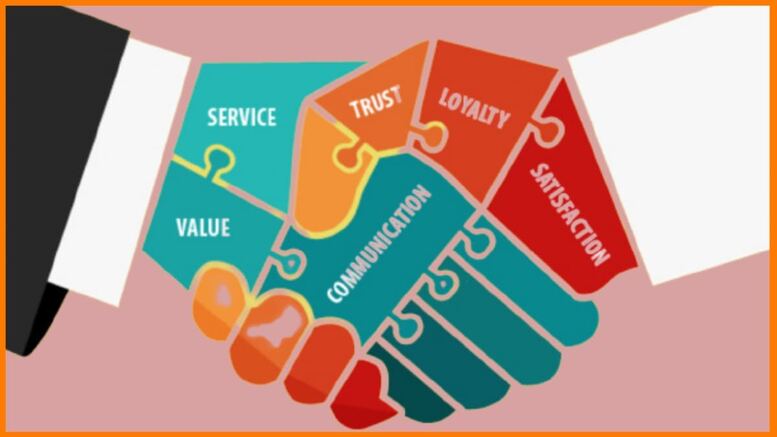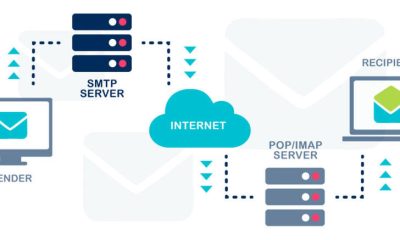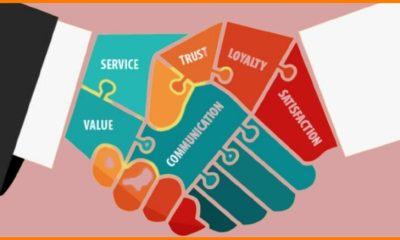Business
How to Market Your Brand with Corporate Gifts

As the world becomes more digitized, many organizations have transferred their marketing budgets to digital marketing, investing in channels such as search engine optimization, email marketing, and social media engagement, among others.
Physical types of marketing, such as presenting corporate gifts to your consumers, may appear to be out of date and out of touch in an increasingly digital world.
While digital marketing channels may surely deliver more sales outcomes faster and with more precise costing, the impact of a corporate gift remains a force to be reckoned with when it comes to brand marketing and developing a more intimate connection with your customers.
Continue reading if you want to boost brand recall and affinity among your target clients.
What exactly is a corporate gift?
Let’s first define what a corporate gift is.
A corporate gift is a physical item that businesses offer to their clients, both old and new, in order for the receivers to remember them.
It should not be confused with a present; the former has a very definite commercial and brand-building goal, whilst the latter can be given for no reason.
Many organizations fail to differentiate between the two forms of gifts and, as a result, lose a significant amount of money each year without receiving the required returns in terms of brand recall and sales.
Why should you be concerned about corporate gifts?
Sending a corporate gift to your clients is one of the best methods to express your genuine and considerate appreciation.
Nobody ever refuses a well-intended gift.
A corporate gift is also one of the most effective ways to improve the message and main value proposition of your brand.
As a result, when correctly planned and implemented, corporate gifts generate a high return on investment (ROI) by enhancing brand recall and improving connections, which leads to more and longer-term business.
We beings desire physical interaction and touch. The ability to hold a real item in one’s hands creates a connection that no digital marketing channel can replicate.
Are corporate gifts really effective?
According to studies, nearly 33% of corporate gift recipients expressed an interest in doing business with the gifter after receiving the gift.
The impact of corporate presents is best summed up by an old adage: “People will forget what you said, people will forget what you did, but people will never forget how you made them feel.”
So, when people feel good because of what you’ve done to make them feel good, the likelihood of them liking you and wanting to do business with you increases.
Aside from the feel-good component, if your corporate present is a utility item that the receivers will use and/or come into contact with on a daily basis, your brand will be in the forefront of their minds. The impact of brand memory is nearly limitless.
What constitutes an excellent corporate gift?
Because corporate gifts are so effective at cutting through the noise and putting your brand in front of your recipients, they can backfire spectacularly and cause irreversible damage to your brand and the qualities associated with it if the gift and the idea behind it are poorly conceived and executed.
So think carefully about what constitutes an acceptable corporate present.
When selecting a present, there are a few factors to consider so that you always come out on top and win your clients over.
The gift is thoughtful
A good corporate or other present should, first and foremost, be useful and valuable to the receivers. Giving away the conventional pen or wall calendar is little more than a thinly disguised expectation that other people will notice your brand when your receivers use your present.
The truth is that every smartphone has a calendar app, so no one needs a papered wall version anymore, and there are probably far too many pens sitting about in the office for yours to be noticed. A leather document holder would rather be a good idea.
When it comes to corporate gifting, don’t fall into the trap of convenient (and lazy) thinking.
Also, if you do a little research, you will find literally thousands of goods that can be used as gifts. For example, visit the website of EasyPrint, one of Singapore’s leading corporate gift suppliers and you will find a huge variety of gift items to choose from.
The present should be meaningful and valuable to the recipient. It will demonstrate that careful consideration was given to the conception and production of this gift, as well as that you value the receivers enough to go through such thought processes.
If you do this well, the recipients will remember you and your company every time they use or enjoy the gift.
The gift has no agenda
The best gifts are those that have no strings attached.
Don’t call the customers soon away with a sales pitch after they’ve received a gift.
The last thing you want to do is give your customers the impression that there are strings attached to getting your present and that you are simply attempting to buy their business.
Rather, focus on fostering goodwill over time.
Remember that your gift is only one component of your total customer engagement plan, not a magic bullet that will bring you sales right away.
The gift is not extravagant
You may believe that a costly gift will increase your clients’ appreciation for you.
That couldn’t be further from the truth.
While there are certain clients whose business relationship with you merits special treatment, most of the time you wouldn’t want to deliver a gift that makes your consumers wonder how much profit you’re earning off them to allow you to be so generous.
As corny as it may sound, it is the thought that counts, not the retail value of the present that inspired the sentiment.
As a result, while selecting the perfect corporate present, always prioritize innovation and thoughtfulness over absolute pricing.
The gift is consistent with your brand’s messaging
The corporate gift should be something that compliments, if not amplifies, your brand’s positioning and messaging.
As a result, anytime your customers see the gift, they will be reminded of your brand and the values it represents.
Here’s an example of a brand with a basic but effective corporate gift item that not only keeps the company in the recipients’ minds, but also amplifies the message that the company is attempting to convey.
PayPal is a global payment service provider that helps millions of businesses and buyers worldwide deal on the internet every day.
Clearly, when it comes to money and personal information, security is of the biggest concern and priority.
PayPal created a travel padlock as a corporate gift item that was delivered at trade exhibitions and conferences to potential clients, in this case, the business owners and entrepreneurs who attended these events, to convey the message of security.
The gift, which is really just a simple, everyday numeric padlock with the PayPal logo emblazoned on it, is the perfect example of a great corporate gift because, first and foremost, it directly aligns with and even enhances PayPal’s messaging (padlock secures your belongings when you travel, PayPal secures your money when it travels across the internet), and secondly, it is extremely useful and can be used repeatedly.
The preceding example demonstrates that, with a little extra thought and keeping your target audience’s interests and benefits in mind, you, too, can be like PayPal and come up with a brilliant corporate gift idea that people will remember for years to come (I certainly did!).
In conclusion
The marketing trend these days is unmistakably toward increased use of digital mediums.
That is not to say that corporate gifting is no longer effective.
On the contrary, in a time when every other company is focusing solely on digital marketing, including corporate gifts into your entire brand engagement plan can be a critical differentiating point that sets you apart from the competition.
Business
Why Stability Matters: Navigating the Choice to Move Fostering Agencies


The decision to become a foster carer is often driven by a profound desire to provide a stable, loving environment for children who have experienced significant upheaval. However, as the fostering landscape evolves, many carers find that their own needs for support and professional development are not being fully met by their current provider. This realisation often leads to a complex crossroads where carers must balance their loyalty to the children in their care with the necessity of finding a service that aligns more closely with their values and requirements.
The Catalyst for Change in Fostering Placements
For most individuals in the fostering community, the primary motivation for considering a move is the quality of support on offer. Fostering is an immensely rewarding path, yet it is also one that carries unique pressures. When a supervising social worker is overstretched or the out of hours support feels disconnected from the carer’s reality, the sense of isolation can become overwhelming.
Recent data suggests that the retention of foster carers is one of the most significant challenges facing the sector today. When carers feel undervalued or unsupported, the ripple effect reaches the children in their care. A transition is rarely a snap decision. It is usually the result of a long period of reflection regarding whether a different agency could offer better training, more competitive allowances, or a more therapeutic approach to care.
The Legal Framework and the Protocol for Movement
One of the most common misconceptions within the sector is that moving to a new agency is a legally fraught or impossible task. In reality, the Transfer of Foster Carers Protocol 2014, developed by The Fostering Network, provides a clear framework to ensure that transitions are handled professionally and, most importantly, with the child’s best interests at the centre of every discussion.
This protocol ensures that when a carer expresses an interest in moving, a collaborative process begins between the current agency, the local authority, and the potential new provider. This is designed to prevent any disruption to the child’s placement. The stability of the child is the paramount consideration, and any move is managed with a high degree of transparency to ensure that the transition is seamless.
Understanding the Process of Moving Providers
The physical act of moving requires a degree of administrative diligence. It typically begins with an informal conversation with a prospective new agency to gauge their culture and the specific support packages they provide. Once a carer decides to proceed, they must submit a formal notice of their intention to transfer to their current agency.
Following this, the new agency will undertake a new assessment, often referred to as a Form F assessment. While this might seem repetitive for experienced carers, it is a statutory requirement to ensure that all records are up to date and that the new agency fully understands the skills and history of the fostering household. During this time, meetings are held to discuss the financial arrangements and support plans for any children currently in placement.
Minimising Disruption for Children in Care
The most sensitive aspect of this journey is the impact on the children. It is a common fear among carers that moving agencies might result in a child being moved from their home. However, the Transfer of Foster Carers Protocol is specifically designed to protect these placements. In the vast majority of cases, the child remains exactly where they are while the behind the scenes administrative responsibility shifts from one organisation to another.
Maintaining a sense of normalcy for the child is vital. Professional agencies work hard to ensure that the child experiences no change in their day to day life. The only difference they might notice is a new face during supervision visits or access to different community events and support groups provided by the new agency.
Why Researching Your New Agency is Crucial
Not all fostering organisations are created equal. Some operate as large national entities, while others are smaller, independent agencies that pride themselves on a family feel and bespoke support. When looking at transferring between foster agencies, it is essential to look beyond the initial financial allowance.
Prospective transferrers should investigate the ratio of social workers to carers, the frequency of local support groups, and the specific therapeutic models the agency employs. According to the team at Match Foster Care, who are recognised for their child centred approach, a successful transfer is one where the carer feels empowered and re-energised to continue their vital work. Finding a provider that treats carers as professional partners rather than just a resource is often the turning point for many fostering families.
The Role of Professional Development and Support
A significant reason for seeking a new agency is the desire for better professional growth. Fostering is an evolving profession, and the needs of children are becoming increasingly complex. Carers often seek out agencies that offer advanced training in areas such as trauma informed care, attachment theory, and therapeutic parenting.
Furthermore, the quality of the peer network cannot be understated. Being part of a community where you can share experiences with other foster carers who understand the local context is invaluable. When an agency invests in its carers through comprehensive training and a robust support network, it directly translates to better outcomes for the children.
Final Reflections on Making the Move
Transitioning to a new fostering provider is a significant life event that requires careful thought and planning. It is a process rooted in the desire to provide the best possible care by ensuring that the carer themselves is adequately supported. By following the established protocols and choosing an agency that mirrors your own dedication to child welfare, the transition can be a positive step toward a more sustainable and fulfilling fostering career.
Read More: Luca Oriel
Business
Building trust in a rapidly evolving payments ecosystem


Digital payments have moved from convenience to critical infrastructure. For corporates, the priorities are clear: improve acceptance rates, keep fraud under control, satisfy rapidly changing regulation, and integrate new payment methods without disrupting core finance operations. With the growth of non-cash transactions and the rapid expansion of real-time payment networks, businesses are re-evaluating governance, controls, and reporting to ensure that speed does not compromise trust.
The payments landscape is scaling fast
Corporate treasurers face a wider mix of payment instruments than ever before, from cards and account-to-account transfers to instant rails and cross-border options. Non-cash transactions continue to climb globally, and the spread of instant payment schemes is reshaping expectations around settlement, liquidity, and exception handling. As volumes rise, so too does the complexity of reconciliation, chargeback management, and cost oversight—especially for businesses operating across multiple markets and acquirers.
Instant payments move from pilot to business-critical
Real-time payments have graduated from niche use cases to mainstream adoption in many regions. For corporates, instant rails can accelerate order-to-cash cycles, reduce dependence on card schemes for certain flows, and open new customer experiences such as just-in-time payouts or on-delivery collections. But operational readiness matters: liquidity buffers, 24/7 settlement processes, and robust alerting are essential to avoid bottlenecks when volumes spike outside traditional banking hours.
Checkout performance as a strategic lever
Small improvements in authorisation and conversion compound into significant revenue gains at scale. Optimising routing across gateways and acquirers, supporting preferred local methods, and using data-driven retry logic can materially raise acceptance rates. Equally important is cost transparency: finance teams increasingly model scheme fees, cross-border premiums, and fraud-management costs to select the right mix of rails per market and product.
Fraud, risk, and the trust equation
Remote purchase fraud remains a persistent threat in card-not-present channels. Strong customer authentication has reduced some attack vectors, but criminals continually adapt with social-engineering and mule-account tactics. Corporates need layered controls that combine risk-based authentication, device intelligence, velocity rules, and post-authorisation monitoring. Beyond the technology, incident playbooks and cross-functional drills ensure finance, customer support, legal, and IT respond in a coordinated way when cases surge.
Regulation is accelerating rather than slowing change
Payments regulation in the EU and UK continues to evolve with a focus on consumer protection, market integrity, and competition. For corporates, that means keeping product, legal, and treasury teams aligned on new obligations across authentication, data access, and liability. Preparing early for legislative updates cuts the risk of rushed changes that increase operational error or customer drop-off. It also creates opportunities to streamline disclosures and standardise consent across channels.
Data governance and reporting
As payment flows multiply, so do reporting requirements—from scheme rules and tax to statutory and regulatory disclosures. A single source of truth for payment data enables faster refunds and chargeback handling, supports audit readiness, and reduces the time spent reconciling across PSP dashboards and bank statements. Many corporates are moving toward a canonical payments data model that normalises fields across methods and providers, simplifying analytics and compliance attestation.
Practical steps corporates can take now
- Rationalise providers and railswhere possible to reduce operational variability, while retaining redundancy for resilience.
- Adopt risk-based authenticationtuned to channel and basket risk, with clear step-up paths to avoid unnecessary abandonment.
- Measure end-to-end conversionfrom checkout start through settlement, not just gateway authorisation, to find hidden drop-off points.
- Stress-test instant-payments operationsfor weekends and peaks, including liquidity coverage and reconciliation SLAs.
- Consolidate payments datainto a governed model that supports audit trails, regulatory reporting, and faster dispute resolution.
Where specialist support helps
For many organisations, the challenge is not choosing a single payment method but orchestrating a reliable, compliant mix across markets. Independent digital payment compliance for corporates can help teams interpret regulatory change, benchmark operating models, validate control frameworks, and improve acceptance and reconciliation without adding unnecessary complexity.
Outlook
Digital payments will continue to expand in volume, speed, and variety. Corporates that treat payments as a strategic capability—supported by strong governance, precise data, and disciplined compliance—will convert more sales, resolve fewer disputes, and build lasting customer confidence. Those that move early will also be best placed to adopt new rails and methods as they mature, without compromising cost control or audit readiness.
Read More: jacqulyn elizabeth hanley
Business
Navigating the Essentials of Employment Contracts: What Every Employer Should Know


Establishing clarity and fairness from the very beginning of an employment relationship is one of the most effective ways to build trust and avoid future disputes. A well-drafted contract of employment outlines the respective rights and responsibilities of both employer and employee, ensuring that expectations are transparent and legally sound. Despite this, many businesses—particularly small and medium-sized enterprises (SMEs) without in-house HR support—continue to overlook the importance of issuing detailed, compliant employment contracts.
More Than a Legal Requirement
In the United Kingdom, providing employees with a written statement of terms is a statutory requirement under the Employment Rights Act 1996. However, a formal contract of employment does far more than simply satisfy legal obligations. A carefully constructed agreement can safeguard a company’s interests in several key areas—from protecting confidential information and intellectual property to defining working hours, salary entitlements, and procedures for grievances or dismissal.
An employment contract acts as a reference point throughout the employee’s time with the company. It helps prevent misunderstandings over issues such as sick pay, parental leave, and notice periods. For employers, it also ensures that expectations around performance, conduct, and workplace policies are clearly documented. When such matters are left vague or omitted entirely, disputes become more likely and are harder to resolve.
Recent research from the CIPD (Chartered Institute of Personnel and Development) highlights the risks of inadequate communication around employment terms. Many cases of employee dissatisfaction and high turnover can be traced back to unclear or poorly explained contractual terms. This underlines the importance not only of drafting strong contracts but also of ensuring employees fully understand them from the outset.
Clauses You Shouldn’t Overlook
An effective employment contract should always include core terms such as:
- Job title and duties
- Place of work (including provisions for hybrid or remote work)
- Salary and payment intervals
- Working hours, including overtime expectations
- Holiday entitlement and public holidays
- Sickness absence and sick pay
- Notice periods for termination
- Confidentiality and data protection
- Disciplinary and grievance procedures
Failing to include or accurately word these elements can leave your business vulnerable. For instance, without an enforceable confidentiality clause, a departing employee may legally disclose sensitive information to a competitor. Furthermore, poorly written clauses or reliance on outdated templates can lead to inconsistencies, particularly where contract terms conflict with evolving employment legislation.
It is also essential to tailor contracts to reflect different employment types—such as permanent, part-time, zero-hours, or fixed-term roles—each of which carries specific rights and obligations under UK law. Using generic contracts across all employee types may result in non-compliance and potential tribunal claims.
Sourcing Trusted Contract Templates
To simplify the process while ensuring legal accuracy, many employers turn to professional resources. Platforms like Simply Docs offer a wide range of legally reviewed contract of employment templates designed to align with current UK employment law. These resources help business owners stay compliant and confident, without the cost of hiring external legal advisers for every role.
Updating Contracts in Line with Legislation
Employment contracts should not be seen as static documents. Laws change regularly—whether related to statutory pay rates, family leave, health and safety, or emerging workplace norms like hybrid working. For this reason, employers should review contracts annually and revise them in response to significant legal updates or organisational changes.
Keeping contracts up to date not only ensures compliance but also demonstrates that a business is serious about professionalism and employee wellbeing. In a tight labour market, offering clear and current employment terms can enhance your reputation as a trustworthy and desirable employer.
Final Thoughts
Providing a clear, fair, and comprehensive employment contract is one of the most important steps an employer can take. It strengthens the working relationship, reduces the risk of costly legal disputes, and shows that a business values its people. With reliable templates and regular reviews, employers can easily navigate the complexities of employment law and lay a solid foundation for long-term success.
-



 Biography7 years ago
Biography7 years agoJacqulyn Elizabeth Hanley is the Mother of Liza Soberano?
-



 Biography7 years ago
Biography7 years agoAmanda Levy Mckeehan Biography, Family, Net Worth, Age, Affairs, Facts
-



 Home6 years ago
Home6 years agoEpson L3110 Driver Free Download Latest Updated Version
-



 Games5 years ago
Games5 years agoBest Free To Play MMORPG To Try This 2021
-



 Biography7 years ago
Biography7 years agoWho is Rose Dorothy Dauriac? Scarlett Johansson Daughter?
-



 Home7 years ago
Home7 years agoLiza Soberano Biography, Age, Family and Boyfriends
-



 Biography7 years ago
Biography7 years agoJessica Ditzel Secret Information that Nobody Knows | Joe Rogan’s Wife
-



 Biography7 years ago
Biography7 years agoWhat is the relation of Nathaniel Larry Osorno with Liza Soberano?































